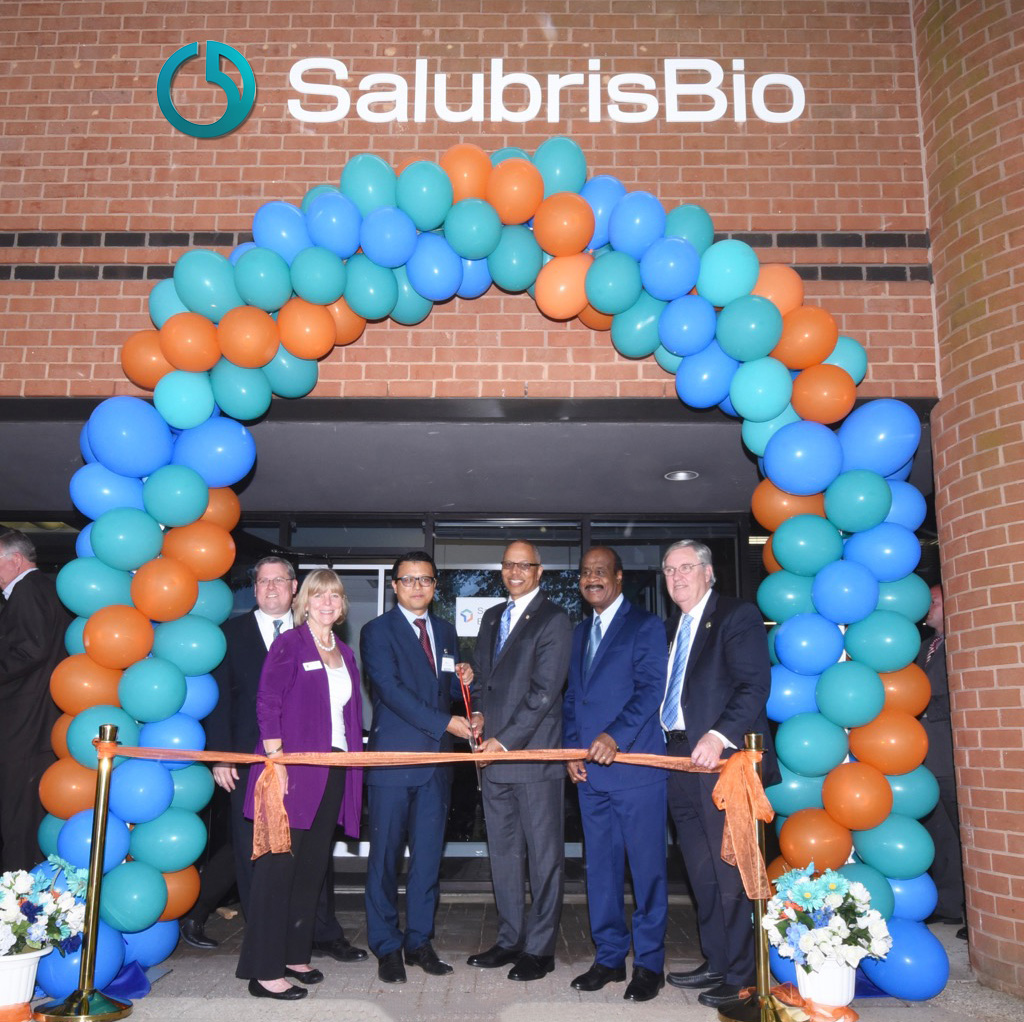Salubris Biotherapeutics, Inc., (hereinafter referred to as"SalubrisBio"), as a wholly owned subsidiary of Shenzhen SalubrisPharmaceuticals Co. Ltd., submitted a clinical application for SAL007 to FDA onJanuary 23, 2020, and was successfully approved on February 22. In the nearfuture, our company will conduct the Phase I of the clinical research in sixtop cardiovascular treatment institutions in the world, led by Cleveland Clinicand including Harvard Medical School Massachusetts General Hospital andStanford University Medicine School.
The successful approval of SAL007 for clinicaltrial is an important milestone in the transformation of Salubris into aninnovative international pharmaceutical enterprise.
SalubrisBio is mainly responsible for theresearch and development of innovative biopharmaceuticals, as well as the applicationof the clinical and production of Salubris in the United States and Europe. Thecore experts have worked in world-class pharmaceutical companies for more thanten years and have rich experience in new drug research and development. Mostteam members have doctoral degrees from top international universities.
Aboutchronic heart failure
With the acceleration of the population agingand the rising incidence of cardiovascular diseases such as hypertension andcoronary heart disease, the incidence and mortality of heart failure (HF) arealso increasing year by year. The incidence of heart failure abroad is 1-5cases/1,000 people/year, 6-8 cases in people aged 60-69, 15-20 cases in peopleover 75 years old and more than 25 cases in people over 80 years old. ① The prevalence of heart failure in China is 2-3%, and the current number ofpatients is about 10 million, which is on the rise with age. The prevalencerate of heart failure doubles every 10years. ② The unmet clinical needs are extremely high.
AboutSAL007
SAL007 is an NRG-1 (Neuregulin-1) fusion antibody drug which is independently developed by Salubris Bio with global intellectual property rights. The planned indication is chronic heart failure.
NRG-1 is a protein containing epidermal growth factor domain, which regulates cell growth and differentiation by activating tyrosine kinase protein receptors (HER3, HER4), including an important role in the normal development and function of nervous system and heart. SAL007 has a unique molecular design, which solves the toxicity of recombinant NRG-1 protein therapy, blocks the function of HER3 receptor without affecting the activation of HER4, and provides a potentially safer choice for thetreatment. The results of preclinical studies show that SAL007 has the characteristics of long half-life. In non-human primate spontaneous chronic heart failure model, SAL007 can reverse myocardial lesions, significantly improve cardiac contractile function, and has outstanding therapeutic effect. Currently, there is no medicine with the same target on the market, thus SAL007 has great commercial potential.
AboutSalubrisBio
On August 11, 2016, SalubrisBio was incorporated in Delaware, USA, and officially opened in Gaithersburg, Maryland, USA on May 1, 2017.

SalubrisBio is mainly responsible for the research and development of innovative biopharmaceuticals, as well as regulatory filing in the United States and Europe. The key members of the company are the people who have worked in well-established pharmaceutical companies for more than ten years and have extensive experience in drug development. Majority of them have doctoral degrees from well-known universities.
SalubrisBio has established a number of key technology platforms for antibody drug development, including phage display, hybridoma cell antibody screening platform, antibody humanization and optimization technology platform, CHO-GS mammalian cell high-efficiency expression platform, bispecific antibody technology platform, and antibody-drug conjugate (ADC) technology platform. Salubrisbio has established a你enriched product pipeline, and several new antibody drugs under preclinical development will gradually move to the IND in coming years..
References:
① Chinese Journal of Heartand Heart Rhythm, No.2, 2015 | Huang Jun,Department of Cardiology, The First Affiliated Hospital with Nanjing MedicalUniversity
② Data from www.365heart.com, Author: Xue Qi, Zhao Yan Unit: ZhejiangProvincial People's Hospital